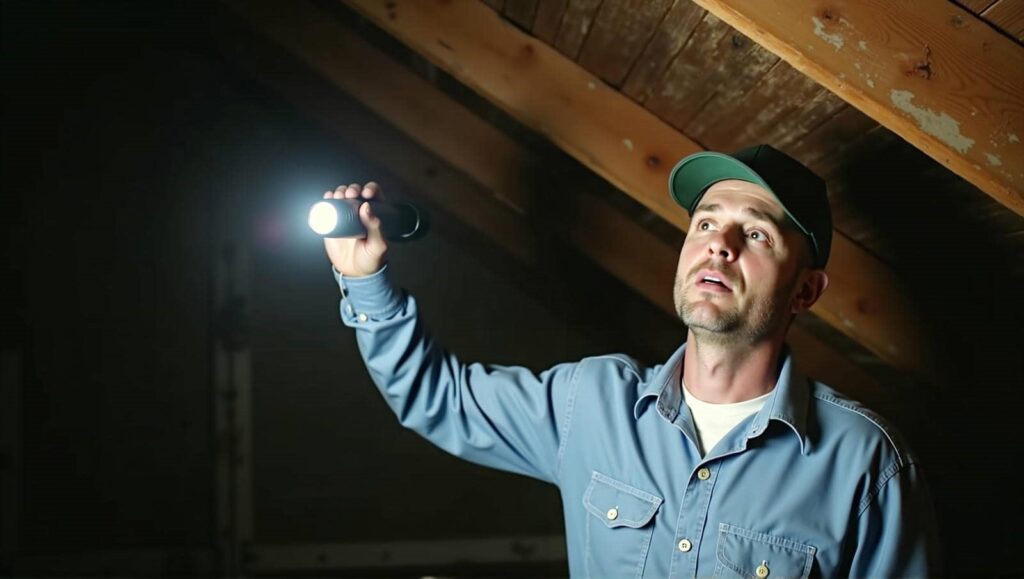Contents
When it comes to optimizing garage door insulation for improved home efficiency, you may be underestimating the impact it can have on your energy bills. By focusing on enhancing the insulation of your garage door, you could be taking a significant step towards a more energy-efficient household. But how exactly can this simple upgrade make a difference in your overall comfort and bottom line? Let’s explore the key factors that make garage door insulation an essential element in your quest for a more efficient home.
Key Takeaways
- Choose high R-Value insulation for maximum efficiency.
- Seal gaps and cracks with weather stripping and caulking.
- Consider eco-friendly materials for sustainability.
- Regular maintenance ensures peak insulation performance.
- Upgrade to energy-efficient garage doors for better efficiency.
Importance of Garage Door Insulation
Insulating your garage door is vital for maintaining energy efficiency in your home. By properly insulating your garage door, you can achieve significant energy savings and better control the temperature within your living space.
The garage is often a large area that’s connected to your home, making it important to take into account its impact on energy consumption.
When your garage door is uninsulated, it can act as a gateway for cold or hot air to enter your home, leading to increased energy usage as your heating or cooling system works harder to maintain a comfortable temperature. By insulating your garage door, you create a barrier that helps regulate the temperature in your garage, preventing it from affecting the rest of your house.
Proper insulation also contributes to energy savings by reducing the load on your HVAC system. When your garage door is insulated, it helps maintain a consistent temperature inside the garage, which means your HVAC system doesn’t have to compensate for the additional heat loss or gain from the uninsulated space. This results in lower energy bills and a more comfortable living environment for you and your family.
Insulating your garage door is a practical and effective way to enhance the energy efficiency of your home while ensuring consistent temperature control throughout the year.
Choosing the Right Insulation Material
When choosing the right insulation material for your garage door, consider the various types available and their respective R-values.
The type of material you choose can greatly impact the insulation effectiveness of your garage door.
Understanding the R-value importance will help you make an informed decision on which insulation material is best suited for your needs.
Insulation Material Types
Selecting the appropriate insulation material is essential for optimizing the energy efficiency of your garage door. When considering insulation material types, it’s important to weigh factors such as insulation material comparison, energy savings potential, cost-effective options, and environmental impact.
Insulation material comparison is crucial in determining which type best suits your needs. Common options include fiberglass, reflective foils, polystyrene, and polyurethane. Each material has its advantages and disadvantages regarding insulation effectiveness, durability, and cost.
Energy savings are a key consideration when selecting insulation material. Properly insulated garage doors can notably reduce energy costs by maintaining a stable temperature within the garage, which can also impact the overall energy efficiency of your home.
When looking at cost-effective options, consider the initial investment versus long-term savings from reduced energy consumption. Additionally, evaluating the environmental impact of the insulation material is important for those who desire eco-friendly solutions. Opting for materials with high recycled content or that are easily recyclable can align with sustainability goals.
R-Value Importance
Consider the R-Value of insulation materials as a key factor in determining their effectiveness in optimizing your garage door’s energy efficiency. R-Value refers to the thermal resistance of the material, indicating its ability to resist heat flow.
Choosing insulation with a high R-Value is essential for enhancing heat retention, leading to significant energy savings over time.
Insulation materials with higher R-Values provide better thermal resistance, helping to maintain desired temperatures within your garage. This improves energy efficiency and enhances home comfort by reducing temperature fluctuations.
When selecting insulation for your garage door, prioritize materials with superior R-Values to maximize heat retention and minimize heat loss.
Proper Installation Techniques
Focus on selecting the right material and sealing any gaps effectively to guarantee excellent insulation efficiency. Proper installation techniques play a key role in maximizing your garage door’s energy-saving potential.
Insulation Material Selection
When selecting insulation materials for your garage door, prioritize options that provide both thermal resistance and durability to ensure proper installation techniques can be effectively applied.
Consider various insulation types such as fiberglass, foam board, or reflective barriers. Conduct a cost analysis to determine the most cost-effective option that meets your insulation needs.
Additionally, assess the environmental impact of the materials you’re considering and opt for ones that are recyclable to reduce waste and promote sustainability.
Fiberglass insulation is a popular choice due to its affordability and ease of installation. Foam board insulation offers high thermal resistance but may require professional installation.
Reflective barriers can help reflect heat away from your garage but may be less effective in colder climates.
Choose an insulation material that suits your budget and efficiency needs and aligns with your environmental values for a well-insulated and eco-friendly garage door.
Sealing Gaps Effectively
Focus on utilizing proper installation techniques to seal gaps in your garage door insulation effectively and ensure maximum energy efficiency and temperature regulation.
When it comes to sealing gaps effectively, it’s important to pay attention to the following key points:
Weather Stripping: Install weather stripping around the edges of your garage door to create a tight seal that prevents air leaks. Choose high-quality weather stripping materials that are durable and provide a strong barrier against drafts.
Caulking Gaps: Use caulk to seal any visible gaps or cracks in the garage door frame. Make sure to apply the caulk evenly and allow it to dry completely to create a smooth barrier against air infiltration.
Proper Installation: Make sure that your garage door insulation is installed correctly, with no gaps or crevices left exposed. Proper installation is important for maximizing the effectiveness of your insulation and reducing energy loss.
Sealing Gaps and Cracks
Inspect your garage door carefully for any gaps or cracks that may be letting in outside air. These openings can lead to air leakage, causing your home to lose heat in the winter and cool air in the summer, ultimately impacting your energy savings. To address this issue, consider using weather stripping and caulking to seal these gaps effectively.
Weather stripping is a flexible material that can be applied around the edges of your garage door to create a tight seal. It helps prevent drafts and keeps out moisture, insects, and dust. Make sure to choose weather stripping that’s durable and suitable for your garage door material.
Caulking is another excellent option for sealing small cracks and gaps in your garage door. It’s a waterproof filler that can be applied to joints and seams to prevent air leakage. Look for a high-quality caulk that’s designed for outdoor use and can withstand temperature changes.
Enhancing Energy Efficiency
Check for energy efficiency gaps in your garage door to enhance your home’s insulation and reduce energy costs. Ensuring your garage door is energy efficient can lead to substantial energy savings and improved comfort within your home.
Here are three key ways to enhance energy efficiency:
Seal Any Gaps:
Inspect your garage door for any gaps or cracks that could be allowing air leakage. Use weatherstripping or caulking to seal these openings, creating a tighter thermal barrier. This simple step can prevent heat loss during the winter and keep cool air in during the summer, ultimately reducing your energy consumption.Upgrade Insulation:
Consider adding or upgrading the insulation in your garage door. Insulation acts as a thermal barrier, reducing the transfer of heat between the inside and outside of your home. By improving the insulation in your garage door, you can enhance its energy efficiency and overall performance.Install Energy-Efficient Windows:
If your garage door has windows, opt for energy-efficient models. These windows are designed to minimize heat transfer and improve insulation. By choosing windows with low-emissivity coatings or double-pane glass, you can further enhance the thermal barrier of your garage door.
Maintenance Tips for Insulation
Keep up with the insulation in your garage door regularly to ensure peak energy efficiency and insulation performance. Proper insulation maintenance is crucial to making sure your garage remains energy efficient.
One cost-effective solution is to regularly inspect the insulation for any signs of wear or damage. Check for gaps, tears, or thinning areas in the insulation material that could be allowing heat transfer. By addressing these issues promptly, you can maintain the effectiveness of your garage door insulation.
When it comes to DIY insulation repairs, there are a few common mistakes to avoid. One of the most frequent errors is using the wrong type of insulation for your garage door. Make sure to choose insulation materials that are suitable for the climate and conditions of your area. Additionally, ensure that the insulation is properly installed without any gaps or compression, as this can reduce its effectiveness.
Regularly cleaning the insulation can also help maintain its performance. Dust and debris can accumulate over time, impacting the insulation’s ability to regulate temperature. By cleaning the insulation surface gently with a vacuum or damp cloth, you can improve its efficiency.
Professional Insulation Services
For peak garage door insulation performance, consider hiring professional insulation services to guarantee proper installation and long-lasting efficiency. Professional insulation services offer a range of benefits that go beyond just energy savings. Here are three key reasons why opting for professional installation is worth it:
Expertise in Insulation Benefits: Professional installers have the knowledge and experience to assess your garage door’s specific insulation needs accurately. They can recommend the most suitable insulation materials and techniques based on factors like climate, garage usage, and desired energy efficiency levels. This expertise ensures that your insulation provides maximum advantages in terms of temperature regulation, noise reduction, and overall comfort.
Ensuring Optimal Energy Savings: Proper insulation is important for maintaining a consistent indoor temperature and reducing energy consumption. Professional installers can make sure that your garage door is effectively sealed and insulated, minimizing heat loss in winter and heat gain in summer. By optimizing your insulation through professional services, you can greatly lower your energy bills over time while creating a more eco-friendly home environment.
Long-Term Efficiency and Durability: Professional insulation services not only assure correct installation but also ensure the longevity and durability of your garage door insulation. With professional installation, you can rest assured that your insulation will remain effective for years to come, providing ongoing energy savings and comfort for your home.
Final Thoughts
Enhancing garage door insulation is crucial for boosting home efficiency. Adequately insulated garage doors can lower energy usage.
By choosing the appropriate insulation material, sealing gaps, and upkeeping the insulation, homeowners can experience a more pleasant indoor environment while cutting down on utility bills. Consider investing in professional insulation services to optimize energy savings and improve home efficiency.




